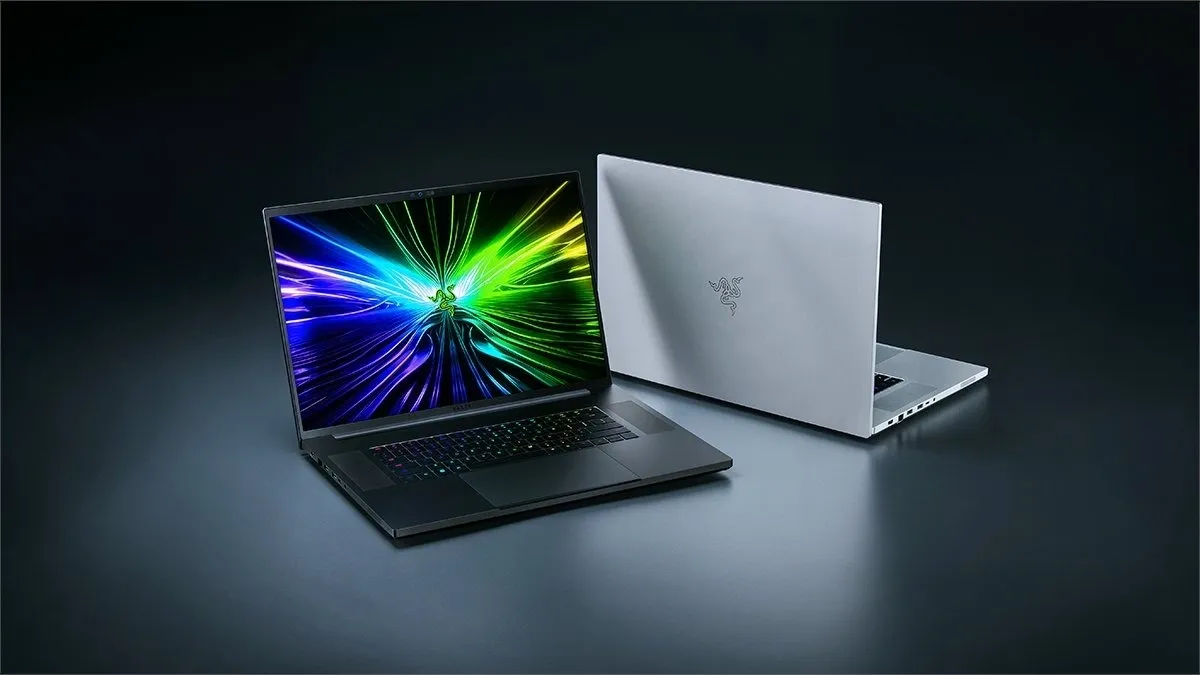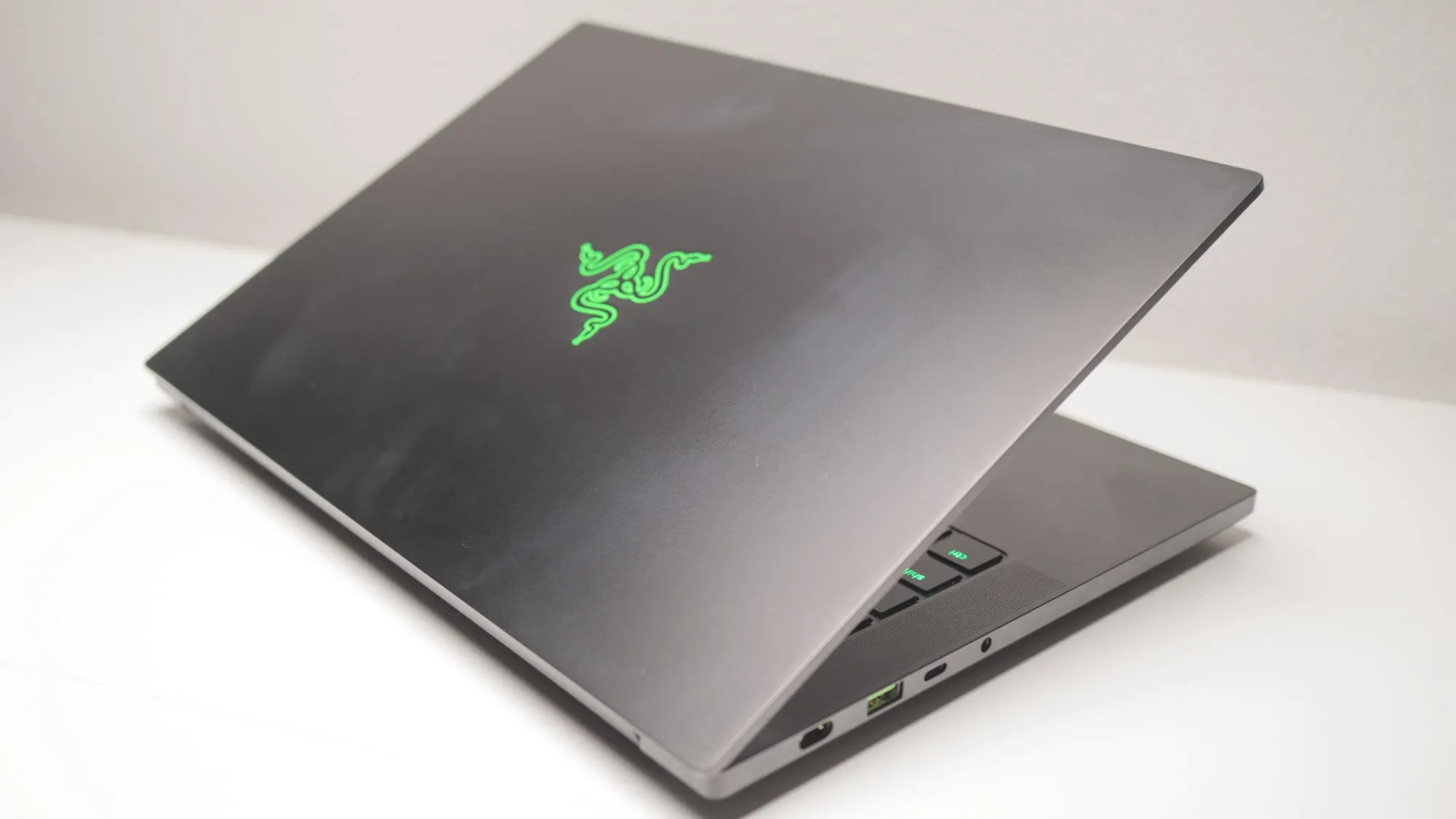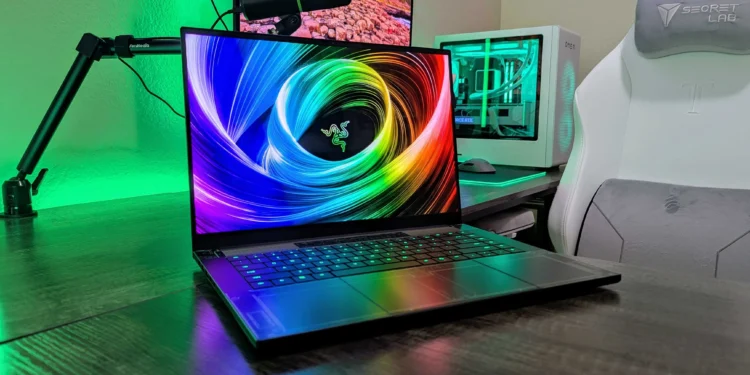In a sudden move that has caught many tech enthusiasts and gamers off-guard, Razer has paused the direct sale of its popular Blade 16 laptops and other models in the U.S. This comes just as a new wave of tariffs is set to kick in tonight, impacting the pricing and availability of imported electronics.

The Blade 16: A Fan Favorite Temporarily Unavailable
The Blade 16, which was expected to be a major player in Razer’s 2025 lineup, is now caught in the crossfire of looming tariffs. On April 8th, Razer’s configurator page for the Blade 16 was taken down, signaling that the tech giant is halting direct online sales of the laptop in the U.S. This strategic pause comes just days before new tariffs are set to impact technology imports into the country.
As noted by users tracking the site, the page looked quite different compared to its earlier version, which was archived on April 1st, 2025, via The Internet Archive’s Wayback Machine. This shift has led many to speculate about the potential price hikes or delays that could follow once the tariffs take effect.
Razer’s decision may affect both consumers looking to purchase new systems directly from the company and the overall laptop market, where prices could rise due to these tariffs.
What’s Behind These Tariffs?
The tariffs, which are set to impact a range of products, have already been a source of contention in the tech community. Some experts argue that they will significantly increase the cost of gaming laptops like the Blade 16, which are often made using high-end components imported from countries that would fall under the new tariffs.
Industry insiders believe that these tariffs could mark the beginning of a more significant price shift in the laptop market. Razer’s move to pause direct sales, while inconvenient, is a proactive response to these trade barriers, which are likely to continue reshaping the market for tech products.

What This Means for Consumers and Retailers
For now, consumers hoping to purchase a Razer Blade 16 directly from the manufacturer will have to wait until the situation stabilizes. However, retailers such as GameStop, Target, and Walmart have confirmed that their preorder windows for upcoming devices, including new gaming consoles, will continue as planned.
This development may signal a shift in how tech companies handle direct-to-consumer sales, especially when facing unpredictable tariff policies that are subject to change at a moment’s notice. Razer, in particular, may need to explore alternate strategies to maintain its market presence, especially in an era where shipping costs and tariffs can drastically impact bottom lines.
Tariffs Aren’t the Only Headline: A Broader Shift in the Tech Landscape
Razer is not the only company grappling with changing economic conditions. Tesla has also announced production cuts and deeper discounts for its Cybertruck line, while several companies, including GameStop, Target, and Walmart, are bracing for shifts in how products are marketed and sold as these economic changes unfold.
In another significant development, House Democrats have raised alarms about a controversial data project by DOGE, a cryptocurrency platform, alleging that it is building a ‘master database’ of Americans’ sensitive information. This announcement raises new questions about privacy and data collection in the digital age.

Meanwhile, in the gaming world, excitement is building for the upcoming Star Wars strategy game, expected to launch in 2026. Gamers are eagerly awaiting what could be the next big franchise in interactive entertainment, while companies like Kia continue to push forward with affordable electric vehicles, promising to make electric driving more accessible to American consumers.
The uncertainty around tariffs and shifting market dynamics means that both companies and consumers will need to adjust quickly. Razer’s move to halt direct laptop sales is just one example of how companies are responding to the challenges of global trade and economic shifts. For now, customers looking to buy the latest in gaming laptops may need to look to third-party retailers until the situation with tariffs is resolved.










